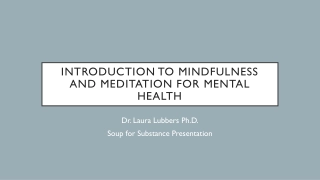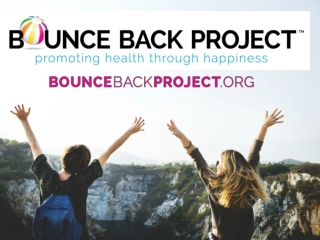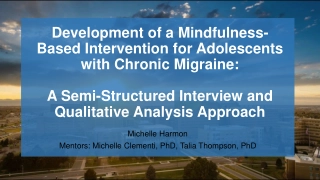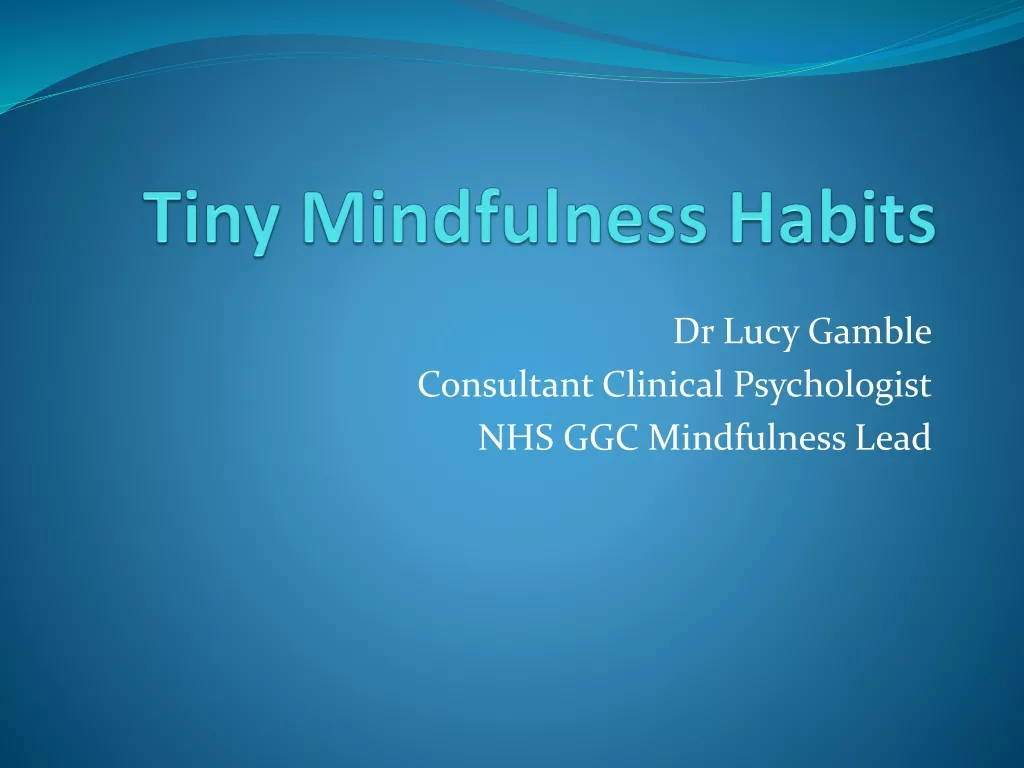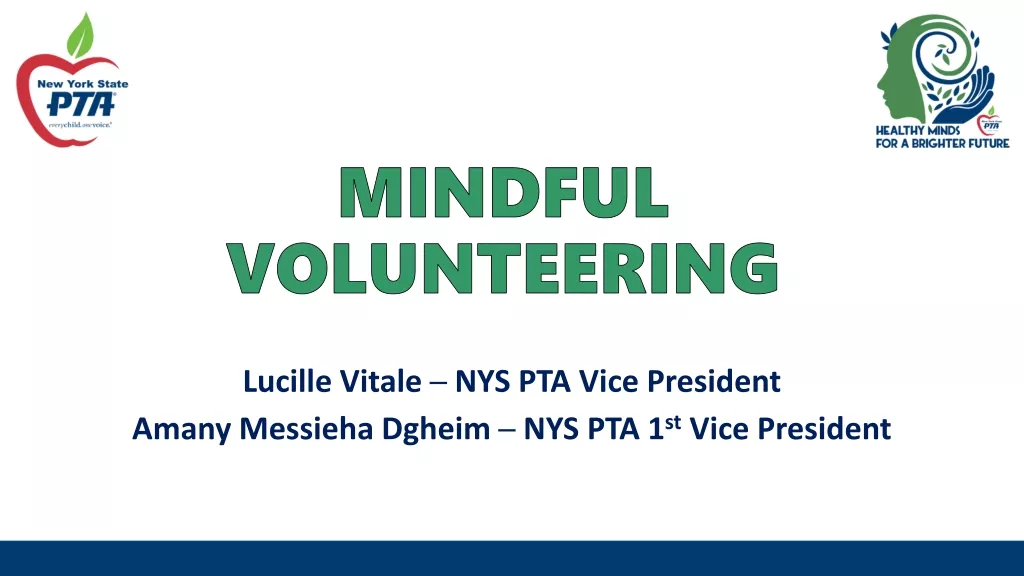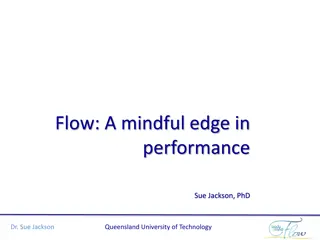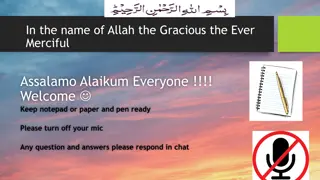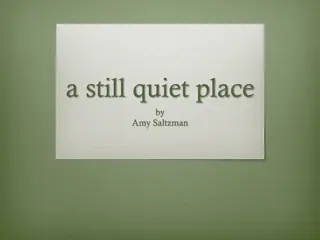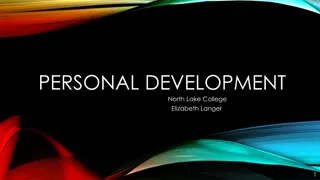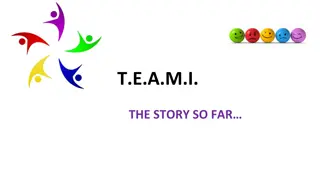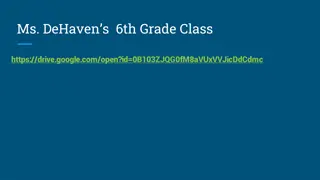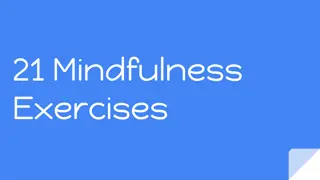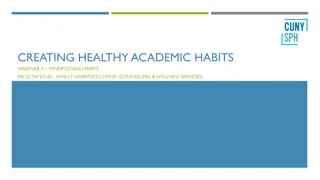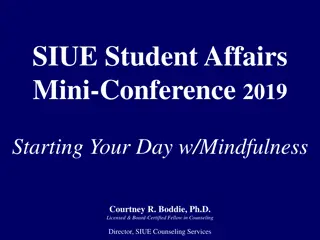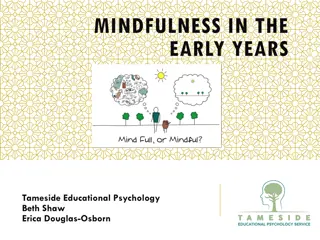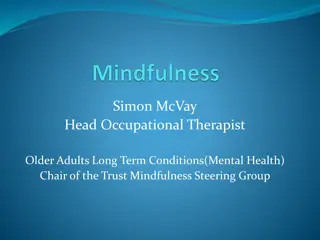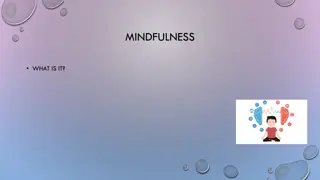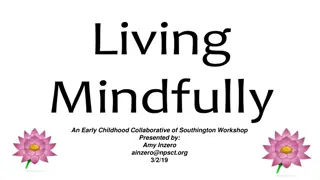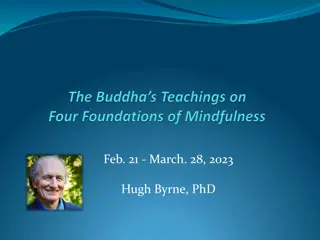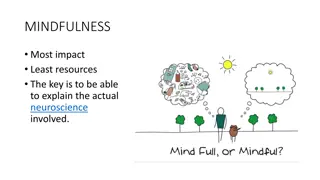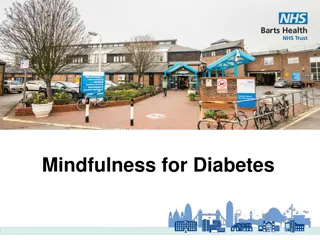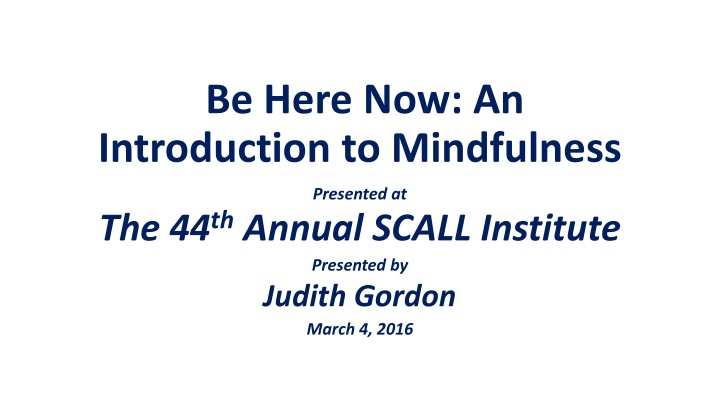
Introduction to Mindfulness and Stress Management Techniques
Explore the concepts of mindfulness, stress, and effective stress management techniques. Learn how mindfulness and conscious breathing can help manage stress responses, leading to improved mental and physical well-being. Discover the impact of stress on the body and the evolutionary survival mechanisms behind it.
Uploaded on | 0 Views
Download Presentation

Please find below an Image/Link to download the presentation.
The content on the website is provided AS IS for your information and personal use only. It may not be sold, licensed, or shared on other websites without obtaining consent from the author. If you encounter any issues during the download, it is possible that the publisher has removed the file from their server.
You are allowed to download the files provided on this website for personal or commercial use, subject to the condition that they are used lawfully. All files are the property of their respective owners.
The content on the website is provided AS IS for your information and personal use only. It may not be sold, licensed, or shared on other websites without obtaining consent from the author.
E N D
Presentation Transcript
Be Here Now: An Introduction to Mindfulness Presented at The 44thAnnual SCALL Institute Presented by Judith Gordon March 4, 2016
What is Mindfulness? Presence of Heart Paying attention to the present moment without judgment and with curiosity. Mindfulness is a path to stress reduction
What is Stress? Stressor: anything in the outside world that knocks us out of homeostasis; an external event Stress response: what the body does to re-establish homeostasis We can think of a stress response in our bodies like any other signal Hunger Eat Fatigue Sleep/Rest Thirst Drink Stress ??
B R E A T H E Breathing resolves stress in three ways Deep breathing sends oxygen into the bloodstream and triggers the brain s relaxation response, along with a whole host of the physiological processes that calm the body and the mind. Breathing brings you into the present. Breathing is a tool for increasing self-awareness and awareness is the first step in managing stress. Breathing is at the heart of mindfulness
What happens when we feel stress? Heart rate rises Increased perspiration Muscles tense Breathing becomes rapid and shallow BUT WHY?
Stress is a SURVIVAL Mechanism As hunter-gatherers, fight or flight kept us safe. Nervous system activates and goes on full alert. Endocrine system pumps out hormones like crazy (think: adrenaline). Glucose, fats and proteins come streaming out of storage in our fat cells to fire up muscles and give us energy for a quick get-away. Rapid delivery of oxygen and nutrients is immediately critical, too, so heart rate, blood pressure and breath rate increase for accelerated delivery to those muscles.
Internal Stressors Uncertainty and worry about the future, trigger stress Work deadlines Difficult people Mortgage Taxes Etc.
Self-generated Stress We don t need to be actively involved in a stressful situation to be experiencing a stress response we can thinkour way into it. Information overload is perceived by our brains as a threat. Cortisol production is the type of stress we need to regulate.
Good News!! We can breathe our way out of an anxious state. Breathing clears our minds increases focus lowers blood pressure lowers heart rate and pulse balances our pH manages our endocrine systems relaxes our muscles
Breathing is Our On-Off Switch Breathing is by far the most important, yet underrated, function in our human operating system. We can live without food and water for weeks, but we can t survive more than several minutes without the ability to breathe. Breathing is the only function that we do both voluntarily and involuntarily. We can use breathing to actively influence our body s involuntary systems nervous system, endocrine system, circulatory system, digestive system...
Lets Breathe! Full Torso Breathing Place one hand on your chest and the other on your abdomen. When you inhale, you want to feel the hand on your abdomen expand further than the one on your chest. Maybe make a quick mental note of how you re feeling now and see whether you feel differently afterward. Deepen respiration not by inhaling more air, but by completely exhaling it.
Multitasking is a Thief Increases the amount of time it takes us to complete a task usually by 2x Quality decreases; causes mistakes Stress increases Brain shrinks lowers IQ Exception
SOLUTION: Four Focus Tools Meditate Block out tasks on your calendar ONE task at a time work faster, with less mistakes and less stress Disconnect from devices once/day walk your dog without your phone, sit in a park Mindful activity -- pay attention to what s going on around you and what s going on within you, without judgment; simply observe. In mindfulness, we turn off our inner critic.
Balance Breathing aka Sweet Breath Balance Breathing balances the right and left hemispheres of the brain.
Create Calm and Confidence Our mind changes our body self-talk Our body changes our mind power poses Breath is the link between the body and the mind
Meditation is a Brain Break Give your brain a break literally. Our brains need periods of non-directed thought such as daydreaming, zoning out, mind-wandering or meditation to embed learning, retain information and improve memory This mental downtime is critical to our health and survival Protects brain from stroke Prevents age-related thinning of the neo-cortex (dementia)
Brain Wave Frequencies Beta intentional, goal oriented activities Alpha wakeful rest, relaxation, daydreaming Theta meditation (deeper rest than sleep) Delta sleep
Meditation Physiological Lowers blood pressure, pulse, heart rate, respiration Harmonizes endocrine system Enhances immune system Decreases muscle tension Relaxes nervous system Improved breathing Normalizes metabolic function Increases gray matter; prevents aging of the brain
Meditation Psychological/Emotional Heightens mental focus and concentration Improves sleep Increases perceptual ability and motor performance Enhances emotional stability and coping skills Reduces anxiety Generates a positive outlook/increased feeling of happiness (serotonin)
Lets Meditate! Attorney David Zlotnick
RESOURCES Apps Insight Timer Head Space iChill Calm Classes and Training UCLA Mindful Awareness Research Center Unplug Meditation Insight LA
THANK YOU! Judith Gordon (310) 968-7270 gordon@law.ucla.edu judith@OrganicComm.com

